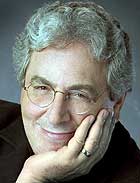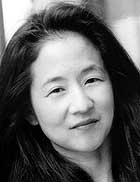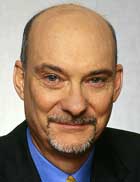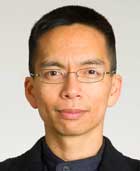The fall 2009 Assembly Series will start off on a light note with comedic filmmaker and Washington University alumnus Harold Ramis. The series continues through mid-November covering topics on entrepreneurship, equal rights, human rights, government and the environment.

Harold Ramis
Ramis, who earned a bachelor’s degree in Arts & Sciences in 1966, kicks off a new season of Assembly Series programs at 7 p.m. Sept. 9 in Graham Chapel.
His work in film has stood the test of time. In an April 2004 New Yorker story, Tad Friend points out how Ramis’ unique perspective on our culture and its institutions have kept his films funny for 25 years. They attack “the smugness of institutional life … with an impish good will that is unmistakably American,” apparent in such films as “Animal House,” which trashes fraternity systems; “Caddyshack,” which targets country clubs; and “Stripes,” which skewers the Army.
Then there are the “tongue-in-cheek pep talks,” one of the most memorable performed by Bill Murray in “Stripes”: “We’re Americans! … That means that our forefathers were kicked out of every decent country in the world.”
Ramis films have the unmistakable imprint of improvisation, picked up from his stint in Chicago’s Second City improv troupe, where he cut his comedic teeth along with John Belushi and Murray.
Ramis featured Murray in six movies, including what most critics consider his masterpiece, “Groundhog Day.” Several films followed, including “Multiplicity,” “Analyze This,” its sequel, “Analyze That,” “Stuart Saves his Family” and “Bedazzled.”
These works, in turn, have influenced and inspired a new generation of comedic talent ranging from Judd Apatow to Bobby and Peter Farrelly.
Since graduation, Ramis has stayed connected to WUSTL and periodically visits the campus. He served two terms on the Board of Trustees from 1997-2005. He received a Distinguished Alumni Award in 1988 and an honorary doctor of arts in 1993.
His latest comedy, “Year One,” stars Jack Black and Michael Cera and has been compared to a Bob Hope and Bing Crosby road movie. And there is good news for Ramis fans: “Ghostbusters III” is in the works.
The rest of the Assembly Series schedule for the fall:

Julie Otsuka
Julie Otsuka
3:30 p.m. Sept. 15, Graham Chapel
“When the Emperor Was Divine,” Otsuka’s debut novel, is a heartbreaking yet unsentimental account of a Japanese-American family’s evacuation and internment during World War II and its return home.
In addition to being a rich character study, “Emperor” delves into the subjects of race, identity and racial profiling. Otsuka’s novel is this year’s Freshman Reading Program selection. Her talk is the Neureuther Library Lecture and is part of a bigger series on racial profiling this fall sponsored by the Center for the Study of Ethics and Human Values. For more on the racial profiling series of events, visit humanvalues.wustl.edu.
Jessica Jackley
5 p.m. Sept. 17, Simon Hall May Auditorium
After experiencing firsthand the many dimensions of poverty, Jackley and her husband, Matthew Flannery, founded Kiva.org, the first online micro financing Web site that connects individual lenders to aspiring entrepreneurs in developing countries.
Kiva is the only micro financing enterprise that provides person-to-person lending and allows lenders and borrowers to stay in touch. Jackley’s presentation is sponsored by the Skandalaris Center for Entrepreneurial Studies.
Jonathan Chase and Dan Hellmuth
5 p.m. Sept. 24, Wilson Hall Room 214
Many of WUSTL’s buildings are environmentally friendly, but the new Living Learning Center at the Tyson Research Center takes the commitment a giant leap forward.
Chase, Ph.D., associate professor of biology in Arts & Sciences and director of the Tyson Research Center, and Hellmuth, a principal and co-founder of the center’s design firm, Hellmuth & Bicknese Architects, will discuss the significant challenges they faced in creating one of North America’s greenest buildings.

Matthew Coles
Matthew Coles
4 p.m. Sept. 30, Anheuser-Busch Hall, Bryan Cave Moot Courtroom
Coles’ lecture is titled “State of the LGBT Movement.” He is a constitutional and civil rights expert on legal issues involving sexual orientation, gender identity, employment discrimination, domestic partnerships and HIV/AIDS.
For more than three decades, Coles has helped bring about some of the country’s legal milestones in gay rights. His lecture is presented by the School of Law’s Public Interest Law & Policy Speakers Series.
Harold Ford Jr.
4 p.m. Oct. 7, Graham Chapel
Ford, a former five-term congressman from Tennessee, shot onto the national political scene in 2000, delivering the Democratic National Convention’s keynote speech. Since losing a close senatorial race in 2006, he chairs the Democratic Leadership Council, is a vice president at Merrill Lynch and teaches public policy at Vanderbilt University. Ford’s presentation is the Elliot Stein Lecture in Ethics.
David Callahan
11 a.m. Oct. 15, Graham Chapel
When it comes to getting ahead in school and life, Callahan believes that Americans are abandoning their moral compass in search of success at any cost. In his book “The Cheating Culture” and its follow-up, “The Moral Center,” he lists the culprits he holds responsible for this decline and presents compelling arguments for a return to honoring our culture’s core principles.
Callahan’s talk is the keynote address for the Center for Academic Integrity Conference.
Zach Braff
Event to be rescheduled. Please check the Assembly Series Web page: assemblyseries.wustl.edu for updates.
While famous for his role as Dr. J.D. Dorian on the quirky TV show “Scrubs,” Braff has enjoyed a parallel career in film. He won high praise in 2004 for writing, directing and starring in the indie hit “Garden State.” Other acting credits include “The Last Kiss” (with Harold Ramis) and “The Ex.” This fall, “Scrubs” will begin its ninth season; for Braff it will be his last. This lecture is sponsored by Congress of the South 40.
Urvashi Vaid
4 p.m. Oct. 23, Graham Chapel
The prominent activist/lawyer has devoted her career to fostering equal rights for the Lesbian, Gay, Bisexual and Transgendered communities. Her 1996 book, “Virtual Equality: The Mainstreaming of Gay and Lesbian Liberation,” brought attention to the progress made by gay persons living in America and the obstacles keeping them from achieving true equality. Vaid’s talk, “Beyond the Wedding Ring: LGBT Activism in the Age of Obama,” is the Olin Fellows Lecture.
Mayor Francis Slay
5:30 p.m. Oct. 29, DUC Commons
This past April, Slay began his third term as mayor of St. Louis. Under his leadership, the city has made progress in reducing some urban social ills but continues to face difficult challenges, especially in education. Slay will lead an informal discussion on St. Louis’ prospects and challenges. Chimes junior honorary is the sponsor for this program.

John Maeda
John Maeda
5:30 p.m. Nov. 4, Graham Chapel
The emergence of computer-assisted art design created the need for experts in both disciplines to educate the next generation of designers. With degrees in computer science and art — and a passion for both — Maeda, who will speak on “Creative Leadership,” has influenced the way today’s artists use technology to create great designs. He is the president of the Rhode Island School of Design and wrote “The Laws of Simplicity.” Maeda is the keynote speaker for the Sam Fox School’s Conference on Economies: Arts Architecture.
Benedict Kiernan
11 a.m. Nov. 11, Graham Chapel
Kiernan’s lecture is titled “Blood and Soil: Genocide in World History.” A leading scholar on the history of genocide with a focus on Southeast Asia, Kiernan has worked tirelessly to bring the Khmer Rouge to justice for its crimes against the Cambodian people. His recent book is “Blood and Soil: A World History of Genocide and Extermination from Sparta to Darfur.” Kiernan will deliver the annual Holocaust Memorial Lecture.
All Assembly Series programs are free and open to the public. For more information, visit assemblyseries.wustl.edu.